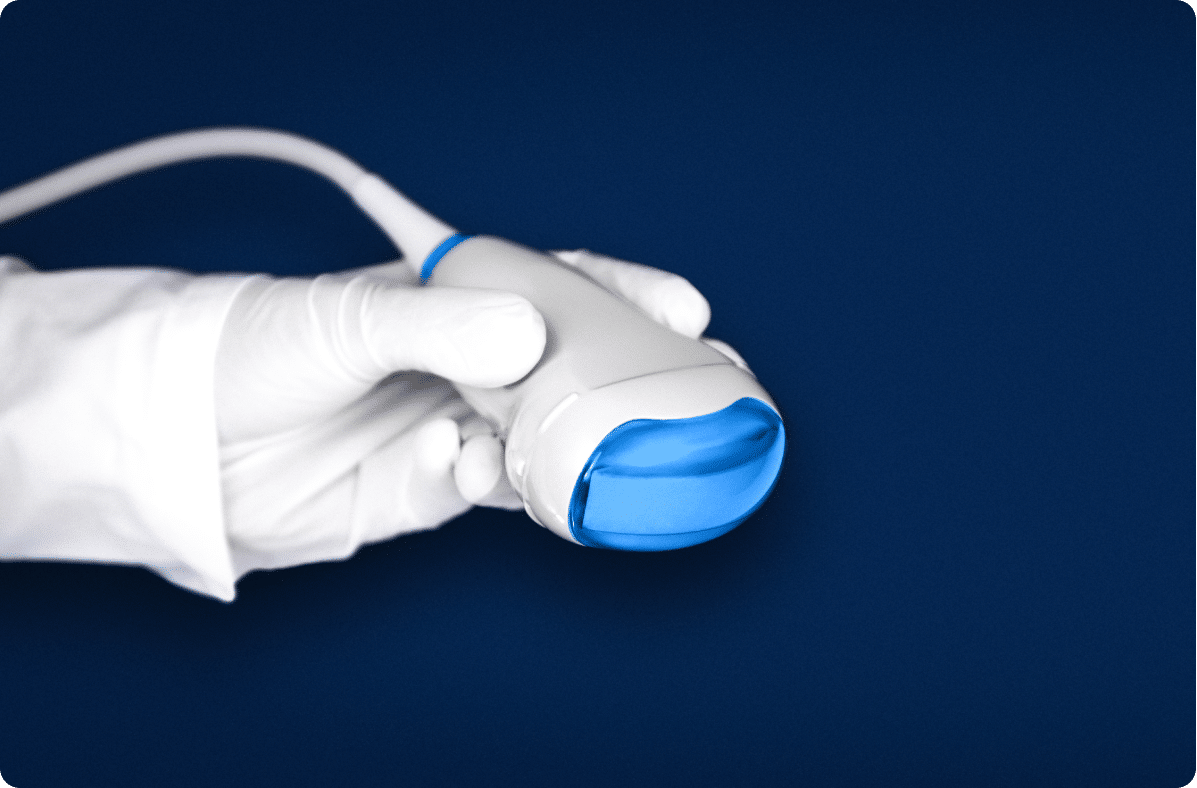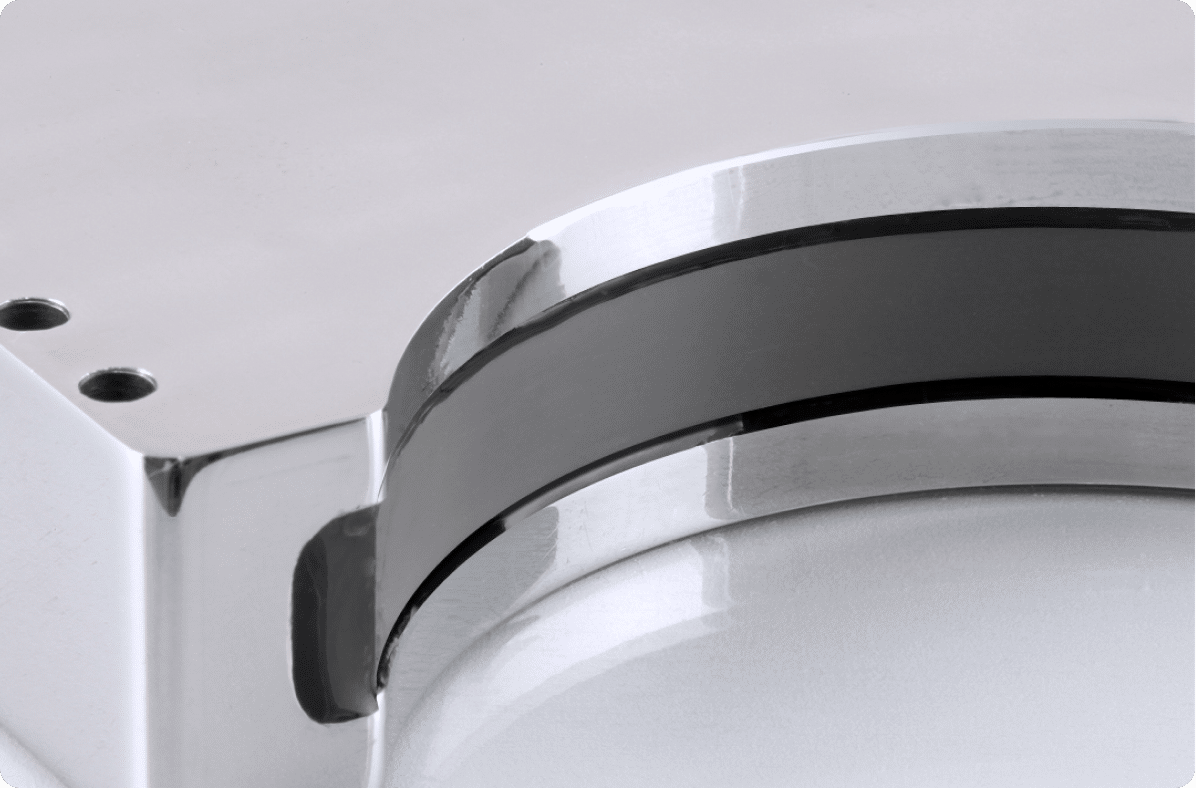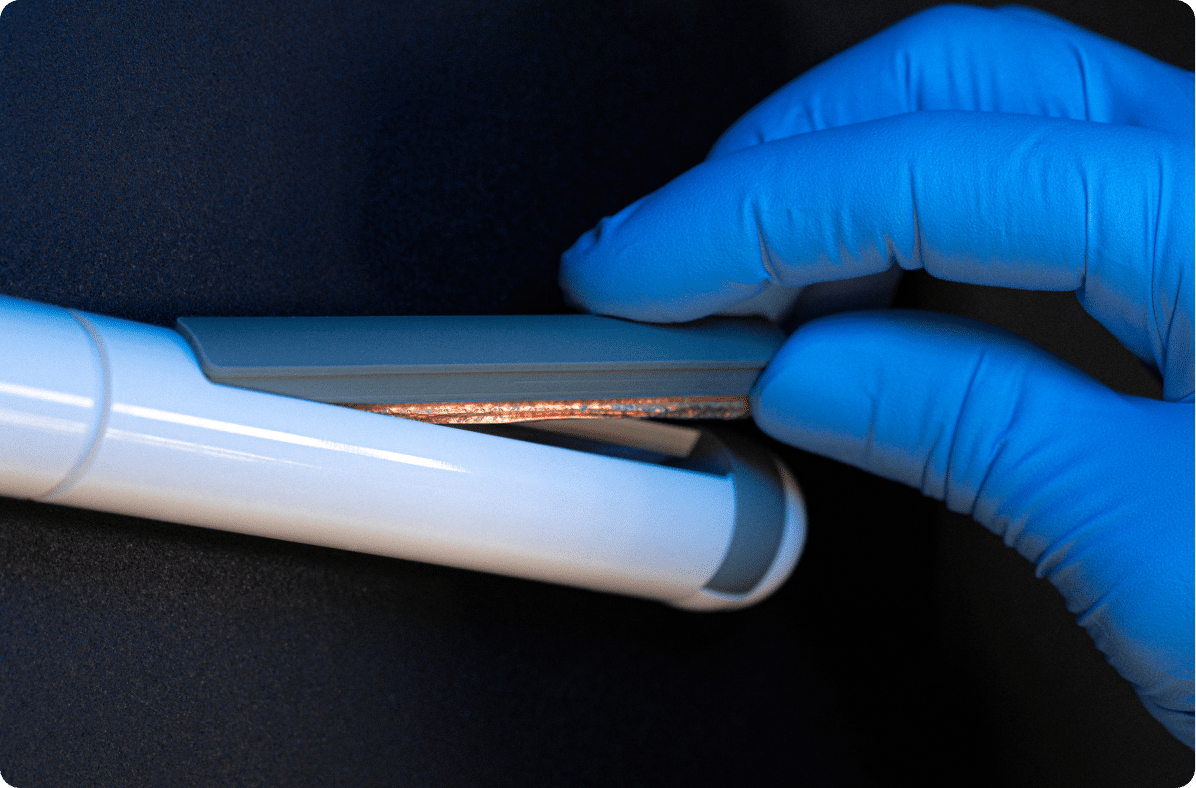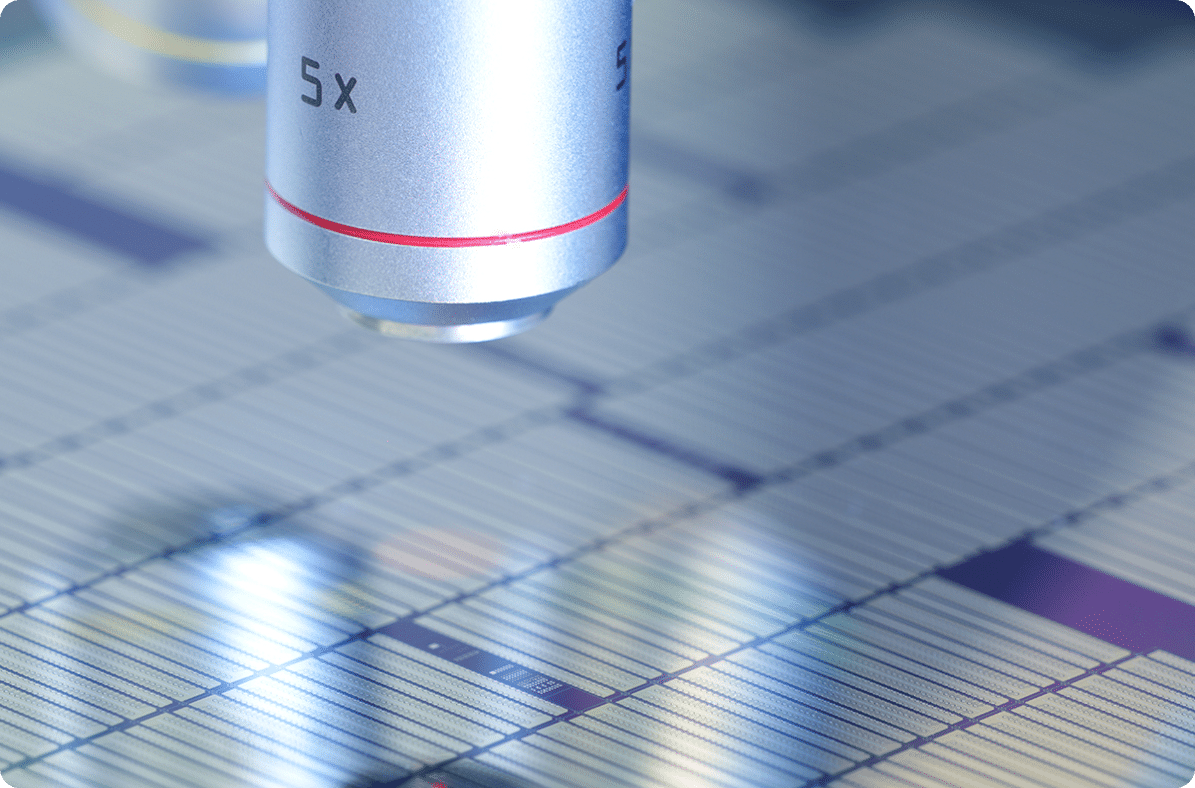History
Tours: The French Cradle of Medical Ultrasound
Tours, has become the cradle of medical ultrasounds thanks to the remarkable work of Léandre Pourcelot and Thérèse Planiol starting in the late 1960s. Léandre Pourcelot, after developing Europe’s first Doppler ultrasonic device for studying blood circulation, joined the Medical Biophysics Laboratory at the Faculty of Medicine in Tours.
There, along side Thérèse Planiol, they implemented revolutionary non-invasive technologies for medical diagnostics, particularly the transcutaneous use of ultrasound. The establishment of the French Society for the Application of Ultrasound in Medicine and Biology in 1972, and the organization of the first congress on medical ultrasound in Tours, cemented the city’s pioneering role in this field.
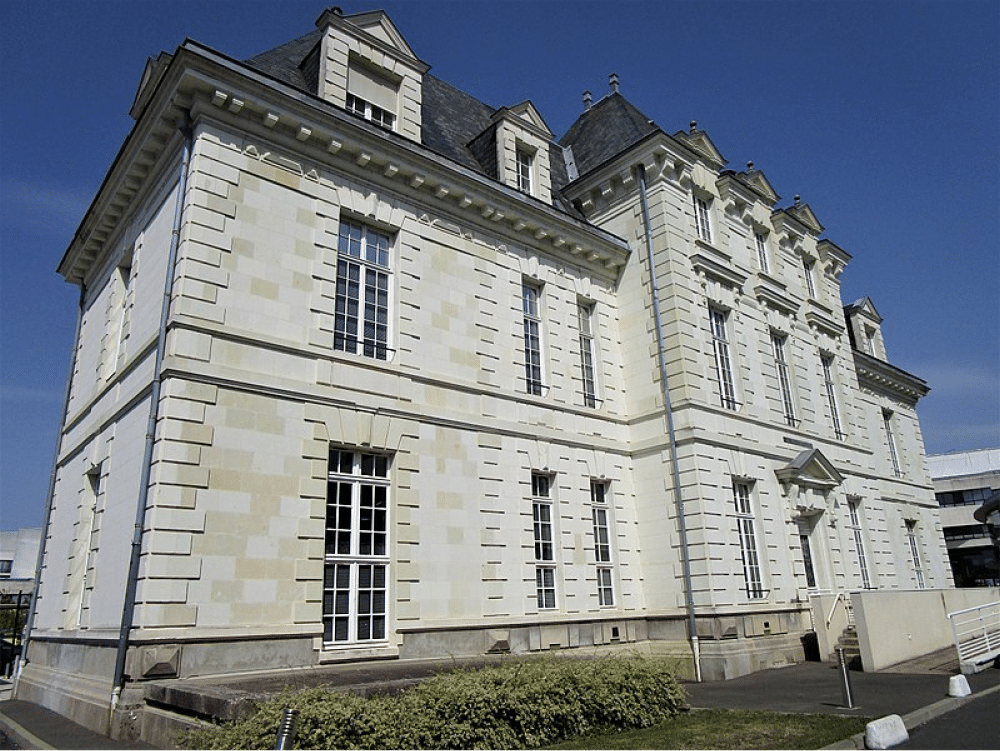
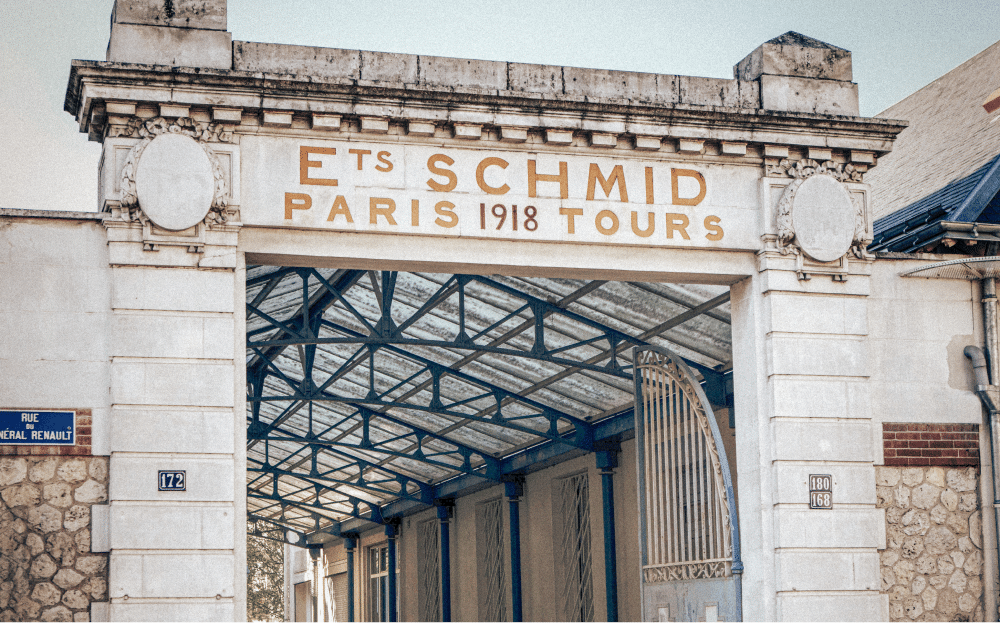
The genesis of Vermon SA
Established in 1984 within the confines of the Tours Faculty of Medicine, Vermon SA represents the progression from dedicated research on ultrasound transducers to technological achievement.
This development began with the concerted efforts of Léandre Pourcelot and his team at the Medical Biophysics Laboratory. The laboratory’s expertise and significant findings prompted the move towards commercialization and led to the creation of Vermon to fullfill the needs of the industry that was looking for industrial suppliers for transducers. It was a promising company with 8 shareholders, including Aimé Flesch.

The French Legacy of Space Ultrasounds
Between 1979 and 1982, Léandre Pourcelot and his team, in collaboration with the French National Center for Space Studies (CNES) and Matra-Interelec, developed the first Doppler echograph for assessing astronauts’ cardiovascular systems.
This ground breaking device was first utilized by French cosmonaut Jean-Loup Chrétien aboard the Soviet orbital station Salyout 7 in 1982. Following this success, the echograph equipped with Vermon probes sawfurther service in 1985 aboard the American spaces huttle Discovery during Patrick Baudry’s mission.
A new echograph, named “As de Cœur” was developed in 1988 by Matra and equipped with Vermon probes. It was utilized aboard the Mir orbital station from 1988 to 1999. Most recently, Vermon developed a bi-motorized probe for the Proxima (2016) and Alpha (2021) missions, continuing to support astronaut health monitoring in space.
The Vermon Group Growth History
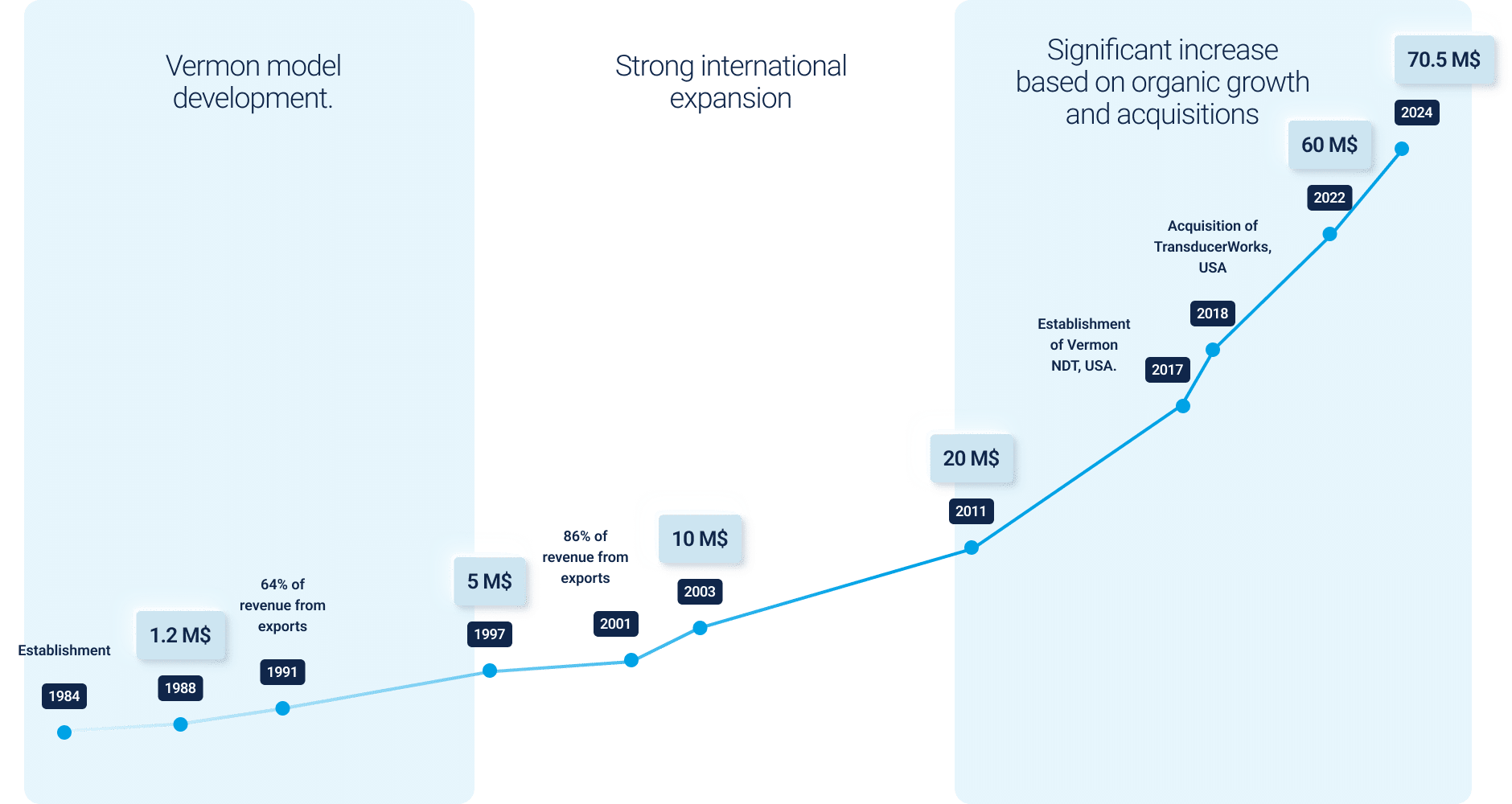
Vermon Model Development.
-
1984
Establishment
-
1988
1.2 M$
-
1991
64% of revenue from exports
Strong International Expansion
-
1997
5 M$
-
2001
86% of revenue from exports
-
2003
10 M$
Significant Increase Based on Organic Growth and Acquisitions
-
2011
20 M$
-
2017
Establishment of Vermon NDT, USA.
-
2018
Acquisition of TransducerWorks, USA
-
2022
60 M$
-
2023
69 M$
-
2024
70.5 M$
Explore more about our History
1985
Vermon established its headquarters in the former Schmid facilities on Rue du Général-Renault in Tours, France.
The official opening took place on November 30, 1985, and was presided over by Mr. Hubert Curien, Minister of Research and Technology, with numerous national and local dignitaries in attendance.
14 Employees
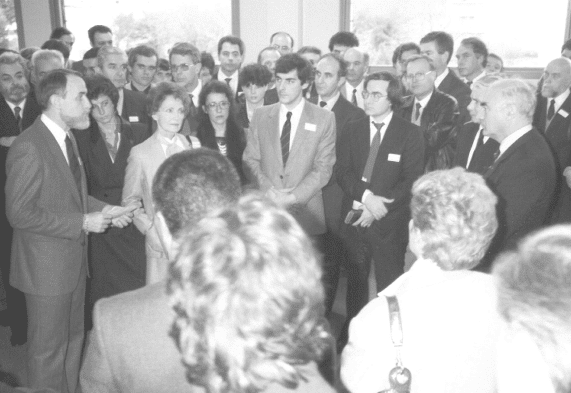
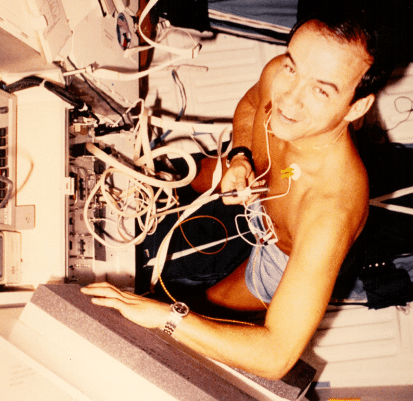
On June 17, 1985, the Discovery space shuttle carried astronaut Patrick Baudry and the pioneering French Echocardiograph Experiment (FEE) into orbit.
This landmarkstudy, designed to analyze the cardiovascular system in space using a Doppler ultrasound device, featured an echocardiograph engineered by Matra-Interelec with Vermon-crafted sensors.
1988
24 Employees
Vermon pioneered the use of piezocomposite technology in single-element mechanical probes.
Vermon has developed a material that combines high efficiency, high damping coefficient, and low acoustic impedance: the piezoelectric ceramic-polymer composite
24 Employees
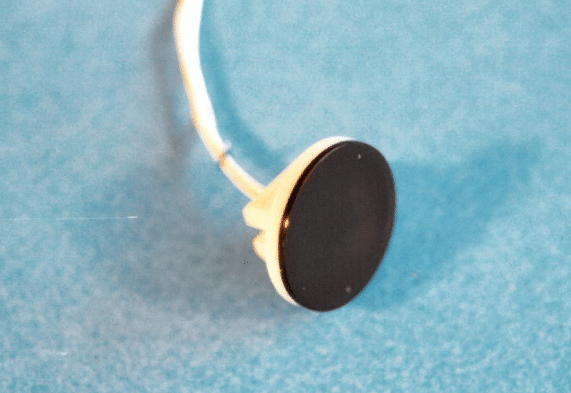
As de Coeur
In 1988, the Touraine researchers proposed a new Doppler ultrasound instrument called “As de Cœur” (manufactured by Matra with Vermon first generation transducer arrays). Selected by the CNES and the Soviets, it equipped the new orbital station MIR and was used from 1988 to 1999 during numerous missions.
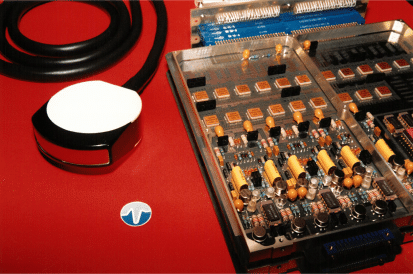
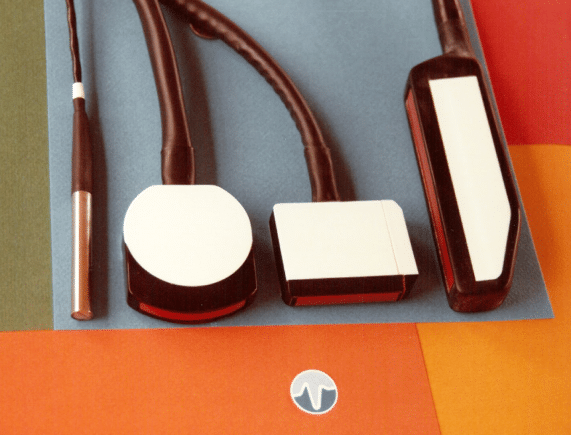
Milestone in the commercial development of linear and curved probes with Piezocomposite.
Third-generation of piezocomposite with performance superior to basic piezoceramic.
Vermon has a large industrial production of this material for medical applications and the highest operating frequency (15 MHz) ever achieved by a piezoelectric ceramic-polymer composite.
1992
Development and delivery of a Doppler recording system, with its probes, adapted for onboard use during the launch phase of the American space shuttle (embarked and used in 1993).
1995
First volume production of high-density 7.5MHz linear arrays and 3.5MHz curved arrays for premium radiology, and high-performance annular arrays for 2D mechanical probes for cardiology.
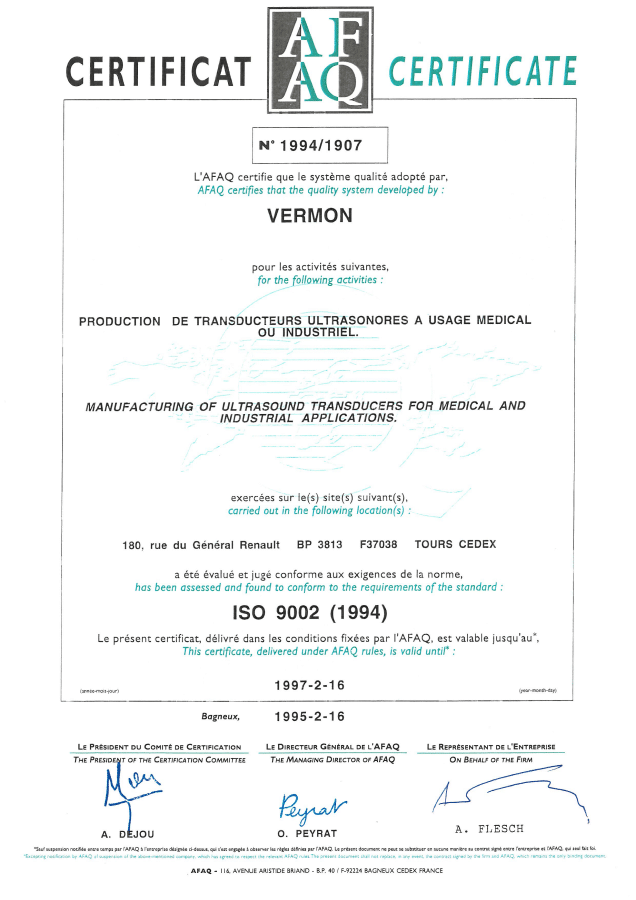
1996
First performances of Vermon beyond 20 MHz.
50 Employees
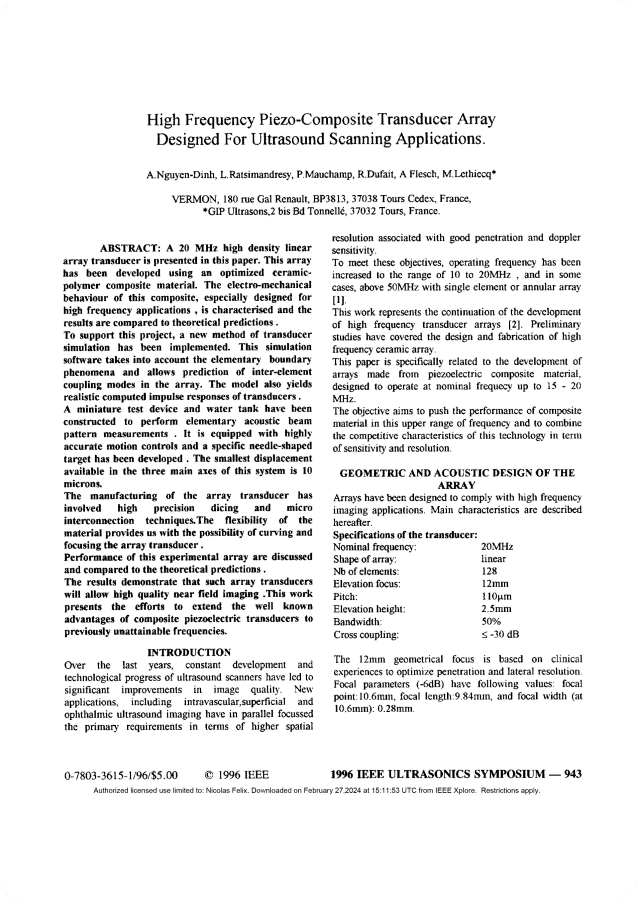
High frequency piezo-composite transducer array designed for ultrasound scanning applications.
Nguyen-Dinh; L. Ratsimandresy; P. Mauchamp; R. Dufait; A. Flesch; M. Lethiecq
1996 IEEE Ultrasonics Symposium. Proceedings.
2000
First CMUT Program
TRANSCAM: “CMUTs for medical imaging”.
French Industry Ministry 2000 RNTS project
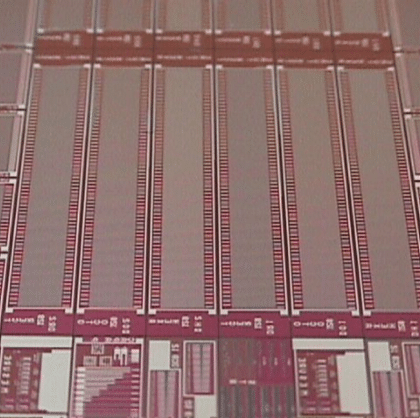
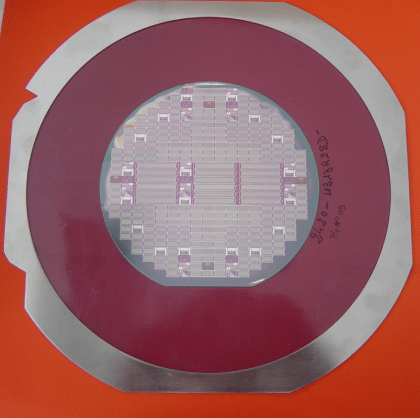
First R&D Program on Single Crystal
Development of relaxor-based improved piezoelectric single crystals-DORIS
European 5th Framework GROWTH Program project
(Partners: Vermon, Tours, France; MATECK, Julich, Germany; FEE, Idar-Oberstein, Germany; Institute of Crystal Growth, Berlin, Germany; CEA/CEREM(Center for Studies and Research in Materials, Grenoble, France).
100 Employees
2002
Global production of 15,000 arrays per year.
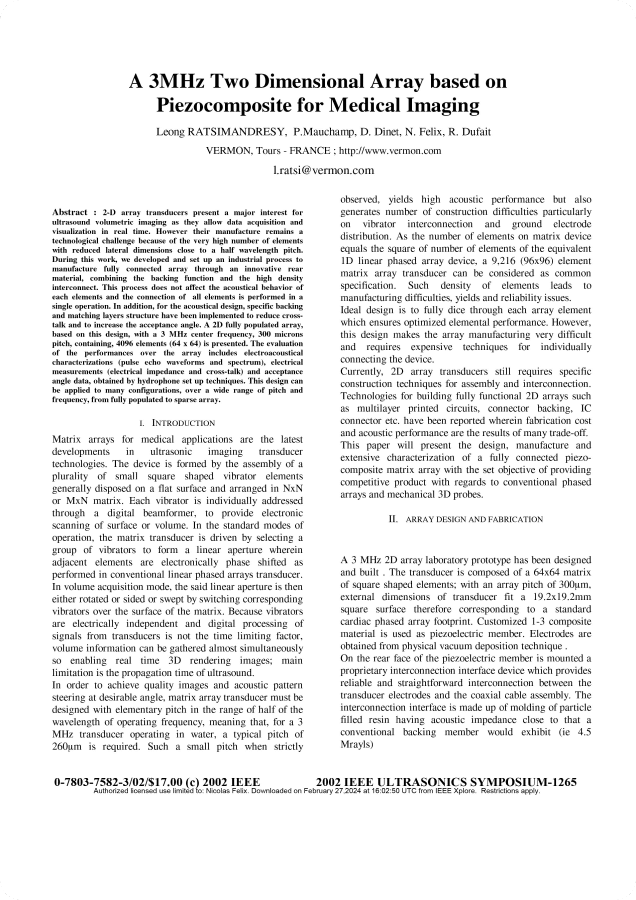
« A 3 MHz two dimensional arraybased on piezocomposite for medical imaging »
L. Ratsimandresy; P. Mauchamp; D. Dinet; N. Felix; R. Dufait
2002 IEEE Ultrasonics Symposium, 2002. Proceedings.
2005-06
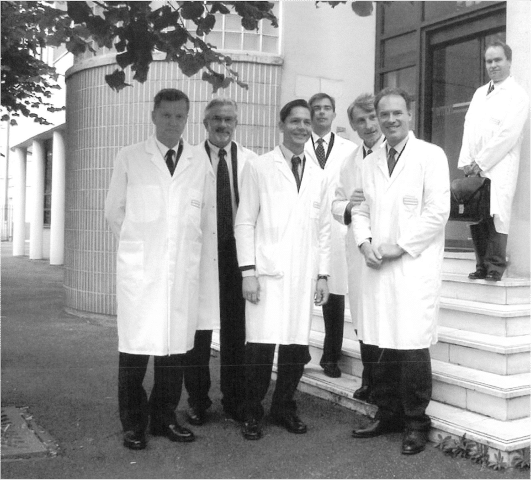
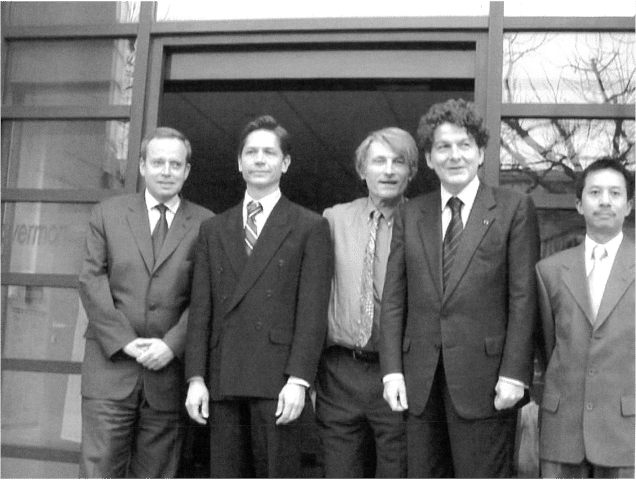
2007
First ISO 13485 Certification
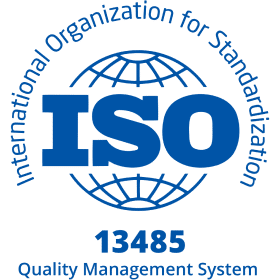
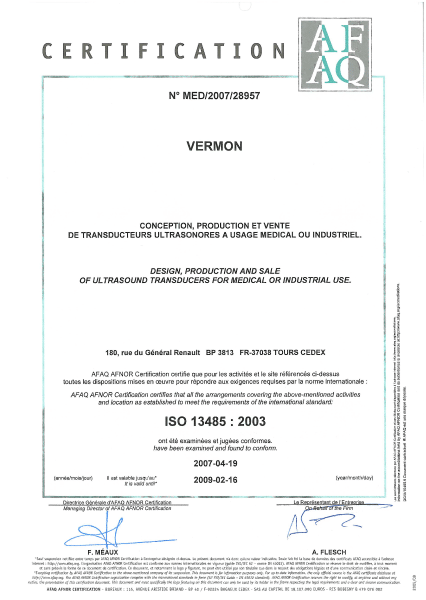
Vermon joins two competitiveness clusters:
Cosmetic Valley and Electrical Energy Sciences and Systems (S2E2).
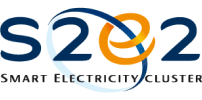
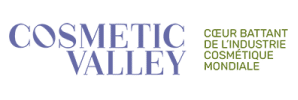
2014
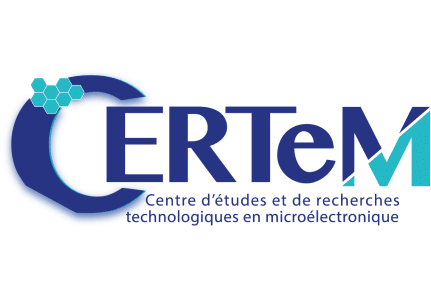
Vermon joins the CERTeM (Center for Study and Research in Microelectronics Technology) as part of the Scientific Interest Group that brings together laboratories, public organizations, and private companies.
In 2014, CERTeM signed its framework agreement CERTeM 2020.
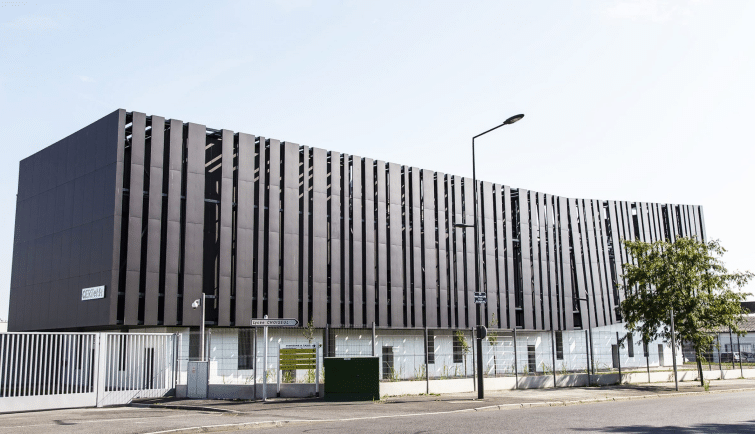
2016


In 2016, Vermon participated and co-organized the prestigious IEEE International Ultrasonics Symposium, hosted in the historic city of Tours, France. The event took place at the VINCI Convention Center.
This symposium, was particularly meaningful for Vermon, given Tours’ significant contributions to the ultrasound field since the late 1960s. The conference not only highlighted Tours’ rich history in medical ultrasound, pioneered by Professor Léandre Pourcelot, but also underscored the region’s cultural and historical significance.
200 Employees

Establishment of Vermon NDT in Walhalla, South Carolina, our U.S. subsidiary specializing in the manufacture of ultrasonic probes for industrial applications.
2017

Acquisition of TransducerWorks, a US-based ultrasound manufacturer situated in the heart of the American ultrasound valley, next to Penn State University.
2018
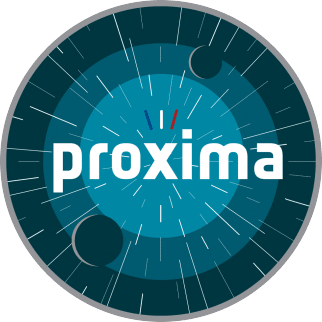
Vermon contributed with Sonoscanner to a pioneering initiative that launched an ultra-compact medical echograph into space, with full control from Earth.
This project aimed to oversee astronaut Thomas Pesquet’s health during the Proxima mission.
2023-present
In 2023, Vermon launched its CSR program, aptly named 'We Care'

320 Employees
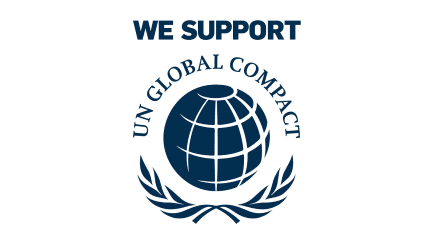
As part of its CSR policy, Vermon is committed to supporting the United Nations Global Compact.

Third ECOVADIS certification: Gold medal top 5% of all companies evaluated y ECOVADIS.
320 Employees

